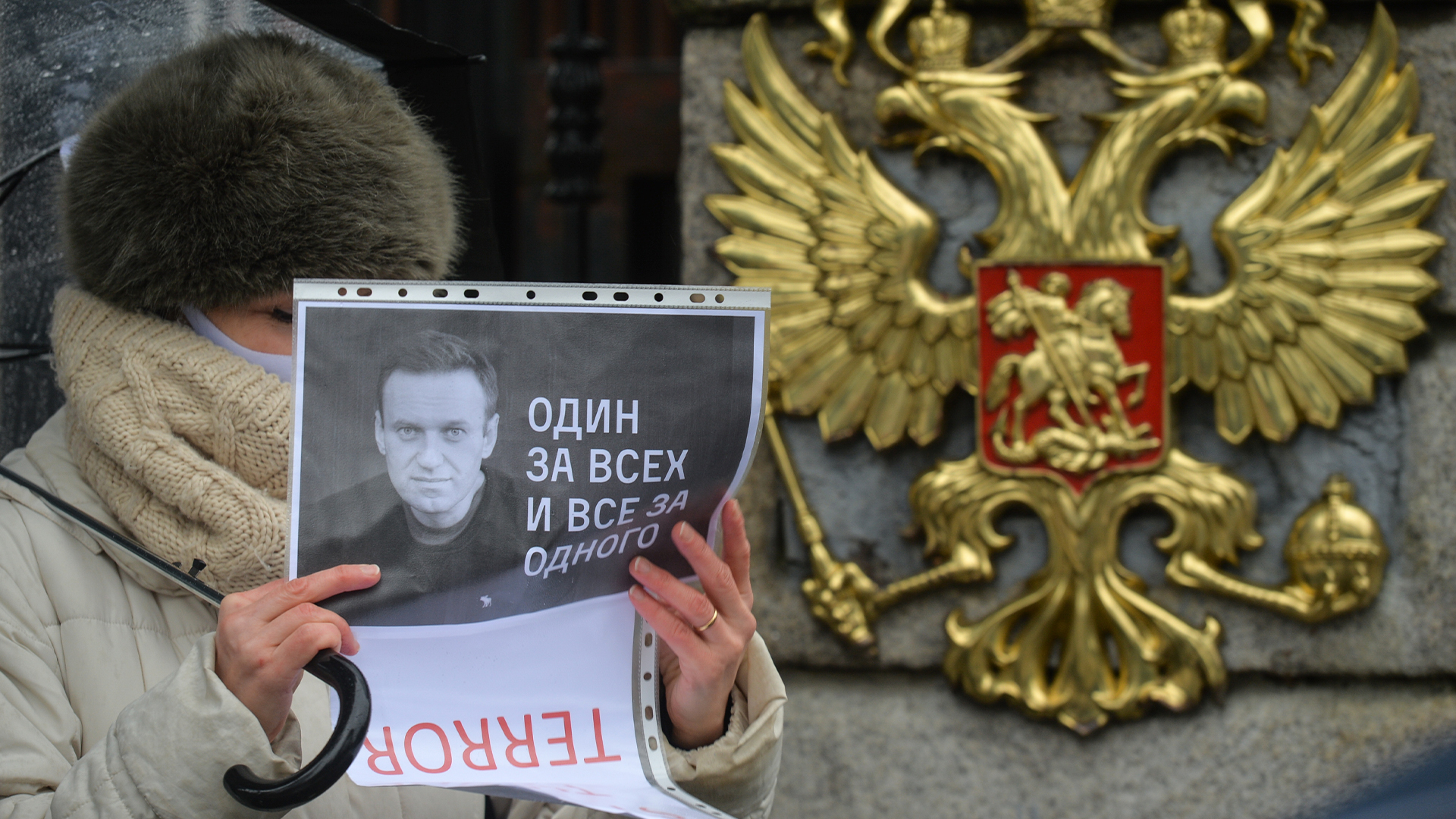

Artur Widak/NurPhoto via Getty Images
Russia is not democratic. But it holds elections anyway. This year, the presidential election feels particularly farcical because it follows barely a month after the death of Alexei Navalny. As a Russian journalist in exile, Navalny’s death felt to me like the most cruel, if not final, nail in the coffin of the opposition.
One of my last stories before I left Russia was an exploration of how the state had weaponized Big Tech to persecute Navalny’s followers, ordinary Russians who had registered their personal details on his website because they were fed up with the status quo. Among the dozens of people I spoke to were Liza, Dmitry, Kirill and Magda, whose compelling stories I wanted to tell.
I was reporting for Coda’s podcast series, “Undercurrents: Tech, Tyrants and Us,” which featured the experiences of individuals around the world who had been caught up in the struggle between tech, democracy and dictatorship. In Russia, Navalny used social media to build a following. Many Navalny supporters gravitated towards him on Big Tech platforms — for instance, following his investigations into Kremlin corruption on his YouTube channel.
Inspired by Navalny, Russians took to the streets to protest and donated to his Anti-Corruption Foundation, or FBK in Russian. They signed up to use his “smart voting” app intended to consolidate protest votes around candidates in all of Russia’s electoral districts who could take on the ruling party. But both Apple and Google, caving to pressure from the Kremlin, removed the app from stores shortly before the 2021 election. Russia had completed the transition from authoritarian state to digitally savvy dictatorship.
The police used Navalny’s database to knock on doors, to seek out people who had registered on the “Free Navalny” website. On the podcast, I found myself breaking the news to Liza, an old friend from school, that her name was on a list, including details such as her tax ID number, home address and employment status. It explained, Liza told me, why the police had come looking for her, asking her parents questions “as if I were a terrorist.”
I reached out to Liza again, as I did to other people I interviewed for the podcast, in the days after Navalny’s death. “Navalny’s death became for me the death of all hope that the Russia I remember could be saved,” she told me. A Ukrainian-born citizen of Russia, Liza now lives in Uzbekistan. Navalny, she said, was “like a key that you hide under a stone near your old house, just in case you have a chance to go back. Now there is no key, there is no stone, and there is no house.”
The police, Liza told me, still visit her parents in Moscow. The Kremlin, she said, “is still investigating the people who donated to FBK.” Five months pregnant now, Liza has lost hope that Russia will change. She is expecting a girl; her daughter, she told me, will be a citizen of Uzbekistan, not Russia.
I also followed up with Dmitry. He was a musician who registered on Navalny’s website and then suddenly found himself out of work, no longer welcome to perform at concerts. When he was not playing music, he drove around the city rescuing stray cats. He had, I said on the podcast, a “sweet round face and blond, hipster haircut.” Dmitry is still in Moscow, still singing in a choir and still rescuing stray cats. But like Liza, he too has lost hope that change is possible. “The feeling that you get living in Russia is that people are keeping a low profile,” he said. “They just wait.”
The people I interviewed on the podcast were among thousands, if not millions, of Russians who genuinely believed Navalny offered a democratic alternative to Putin’s increasingly Stalinist regime. That belief has been stamped out. Kirill, a train driver for the Moscow metro, told me he had registered on the “Free Navalny” website out of curiosity. At the time, he had begun to date Magda, a liberal with little patience for the Russian establishment. His curiosity cost Kirill his job. “You fucking registered on his website,” his boss shouted at him, denouncing Navalny as an enemy of the state. Kirill was sacked for being “insufficiently loyal to President Putin.”
Now in Sochi, a town on the Black Sea about a thousand miles from Moscow, Kirill and Magda await visas that will enable them to leave Russia. “I can’t speak freely right now, I’m in a public place” Kirill told me when I called him after Navalny’s death. Magda said she “had a feeling of deja vu.” The shock of Navalny’s death echoed the shock she felt when Russia launched its invasion of Ukraine. Two years ago, on February 24, she told me, “I received a message from a friend: ‘Are you awake? The war started.’” On February 16 of this year, the same friend sent Magda another message: “Are you awake? Navalny was killed.” Both events strengthened Putin’s regime, representing a decisive turn away from the country that Magda still hoped Russia could be.
For a quarter of a century, Putin has controlled Russia. This weekend, he will extend his reign, with any serious opposition either dead or imprisoned. “The future is no longer frightening,” Liza told me, “because the worst is happening in the present.”

